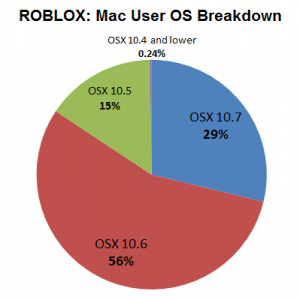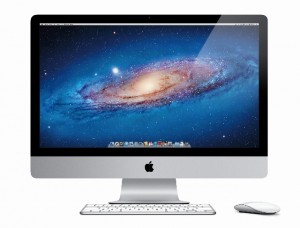Blog Archive
Last weekend, a friend and I set aside a day to delve into the trenches of Civilization V’s multiplayer mode. She purchased her Mac copy via Steam, slogged through the two-gigabyte download and fired it up – only to find out it isn’t compatible with Mac OSX 10.5. Making matters worse, our plans were destined to fail, as Aspyr’s Mac port doesn’t allow Mac and PC players to join the same online game.
Game development is littered with these sorts of porting blunders, but my experience with Civilization V got me thinking about how we approach compatibility at ROBLOX. Our engineers are committed to building ROBLOX in such a way that works well on many platforms, including Macs (and soon, mobile iOS devices).
ROBLOX is Mac-compatible because the core C++ code – the nuts and bolts behind your games – is platform-independent. Our engineers take that core code and add tweaks and interface changes using special Mac tools to ensure it runs just as smooth as it does on the PC. Think of it like putting on a pair of running shoes before going for a jog: same feet underneath, but optimized for a unique situation.
Whether you’re playing ROBLOX on a PC or Mac, there’s no difference in appearance or experience. You can even join games with a blend of PC and Mac players, a type of cross-platform play that troubles online gaming services and triple-A game developers to this day. Just look at my experience with Civilization V.
 ROBLOX is available to all Mac users running Mac OSX 10.5 Leopard and up. We decided to work from 10.5 because our web data on Mac users show that 28% use 10.7, 54% use 10.6, 15% use 10.5, and just 0.24% use a pre-10.5 version with the PowerPC processor.
ROBLOX is available to all Mac users running Mac OSX 10.5 Leopard and up. We decided to work from 10.5 because our web data on Mac users show that 28% use 10.7, 54% use 10.6, 15% use 10.5, and just 0.24% use a pre-10.5 version with the PowerPC processor.
Our doors are open to both Mac and PC users – and more platforms in the future, thanks to our flexible core code. That’s just one of the many reasons we see, on average, more than 21 million hours of game time per month.
